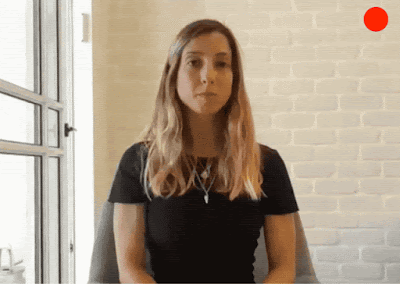Como comandante de la California Army National Guard (Guardia Nacional del Ejército de California), generalmente sé de antemano cuándo estaré activo para el servicio militar. Pero este año todo cambió: Entre la respuesta a la COVID-19 y los incendios forestales en California, me tomé una licencia militar de mi trabajo en Google como gerente de programas de integración de hardware varias veces. Estuve en servicio por tres meses para ayudar con la respuesta a la COVID-19, seguido de una activación de incendios forestales durante una semana.
Ayudar a mi comunidad durante estos tiempos difíciles ha sido agotador y satisfactorio a la vez. Cuando entro en servicio con poca anticipación, mi equipo de Google interviene de inmediato para cubrir mi trabajo en mi ausencia. Me siento muy acompañado por mis colegas y el gerente, y reconozco lo afortunado que soy de trabajar en una compañía que respeta y acepta a las personas con cargos militares en servicio activo de medio tiempo como yo, así como a otros veteranos y sus familias.
No solo siento el apoyo de mis compañeros de Google, sino que también estoy muy orgulloso de que Google apoye financieramente a las personas activas e inactivas en servicio militar con una política de licencia militar generosa. Google les paga a los soldados de la Guardia Nacional y a los reservistas la totalidad de su salario de Google los primeros 30 días calendario de servicio. Luego, Google pagará la diferencia entre el salario de un Googler en licencia por servicio militar y el salario militar para que el reservista o soldado de la Guardia Nacional reciba casi la totalidad de su salario de Google durante el servicio por hasta cinco años.
Mientras honramos a los veteranos el Día de los Veteranos, Google realmente se compromete a apoyar a la comunidad todo el año con programas, capacitaciones y herramientas.
Solo en las últimas semanas, Google anunció losleave benefits for military spouses (beneficios de licencia para cónyuges de militares) yServing Veterans, un nuevo centro de recursos de bienestar de salud mental para los veteranos y sus familias. Además, Google lanzó recientemente unavirtual career series for veterans (serie de carreras virtuales para veteranos) para aquellos interesados en explorar carreras en Google. Si busca un nuevo empleo, escriba “jobs for veterans” (trabajos para veteranos) en la Búsqueda de Google y, luego, ingrese su código de especialidad ocupacional militar o el equivalente para ver qué trabajos pueden requerir las habilidades que aprendió durante su experiencia militar. En la página de inicio de EE. UU. de hoy, verá un doodle especial creado por Jenn Hassin, artista invitada y veterana de la Fuerza Aérea de Texas. El doodle escultural se creó con miles de rollos de papel hechos a mano con los uniformes que cada rama militar donó.
Google también acompaña desde hace mucho tiempo a las familias de los veteranos y militares que tienen su propia empresa. Las empresas manejadas por veteranos pueden agregar la característica de “Veteran-Led” (Liderada por veteranos) en su Google Business Listing (Ficha de empresa de Google) en la Búsqueda de Google y en Maps en unos pocos pasos sencillos. Como en noviembre no solo se celebra el Día de los Veteranos, sino también la National Veterans Small Business Week (Semana nacional de pequeñas empresas de veteranos), me gustaría mencionar los recursos deGrow with Google for Veterans and Military Families (Crecimiento con Google para veteranos y familiares de militares) desarrollados para veteranos y cónyuges de militares que deseen mejorar sus habilidades profesionales o formar sus empresas.
Grow with Google presentó recientemente un taller virtual para ayudar a las empresas lideradas por veteranos a prosperar y un panel de discusión con Jen Pilcher dePatriot Boot Camp y Charles Cathlin deTruGenomix sobre cómo han desarrollado sus empresas en línea. VisiteGrow with Google On Air para disfrutar la grabación gratuita de este evento.
Uno de ellos es la lección de la aplicación Primer de Grow with Google llamada “Build Digital Skills to Adapt And Grow Your Veteran-led Business” (Desarrolle habilidades digitales para adaptar y desarrollar su empresa liderada por veteranos). Este tutorial rápido presenta sugerencias sobre cómo gestionar las ventas, las operaciones, las finanzas y otros aspectos de su empresa mediante herramientas fáciles en línea. Puede descargarla aplicación Primer en Google Play Store o Apple App Store para acceder a este contenido en su dispositivo móvil. Simplemente busque “veteranled” (liderada por veteranos) en la aplicación para encontrar esta lección.
Google no solo centra su apoyo en los miembros militares: Los familiares de militares son igualmente importantes. Muchos de estos esfuerzos están dirigidos porMary Spence, una Directora de Programas de Google y esposa de militar.
Un recurso que Grow with Google ayudó a crear es laMilSpouse Career Roadmap (hoja de ruta de carreras para cónyuges de militares). En asociación con Hiring our Heroes, esteestudio de investigación financiado por subvenciones encuestó a más de 1,500 cónyuges de militares para crear un centro interactivo. Ofrece una variedad de herramientas y recursos que ayudan a los cónyuges de militares a encontrar y desarrollar carreras compatibles, incluida laGoogle’s remote work search feature (función de búsqueda de trabajo remoto de Google) y recursos de educación y empleo delSpouse Education and Career Opportunities Program (Programa de oportunidades laborales y educativas para cónyuges) del Departamento de Defensa de los Estados Unidos.
Estas son solo algunas de las formas en que los miembros militares como yo y los veteranos y nuestras familias recibimos apoyo como parte de la comunidad de Google. Para conocer mi historia y la de otros empleados de Google en la comunidad militar, visite el canal de YouTube Life at Google que muestra a veteranos de Google.

